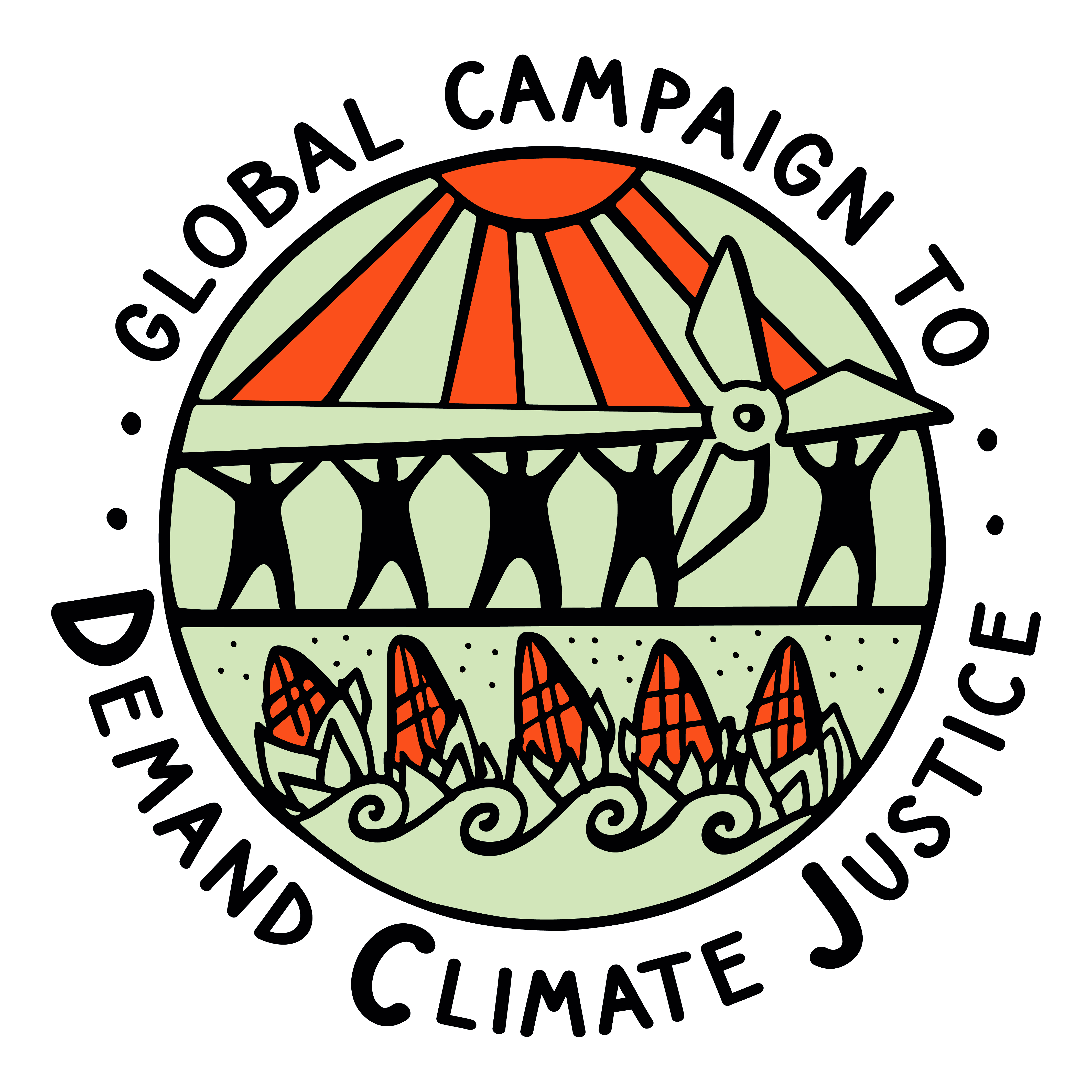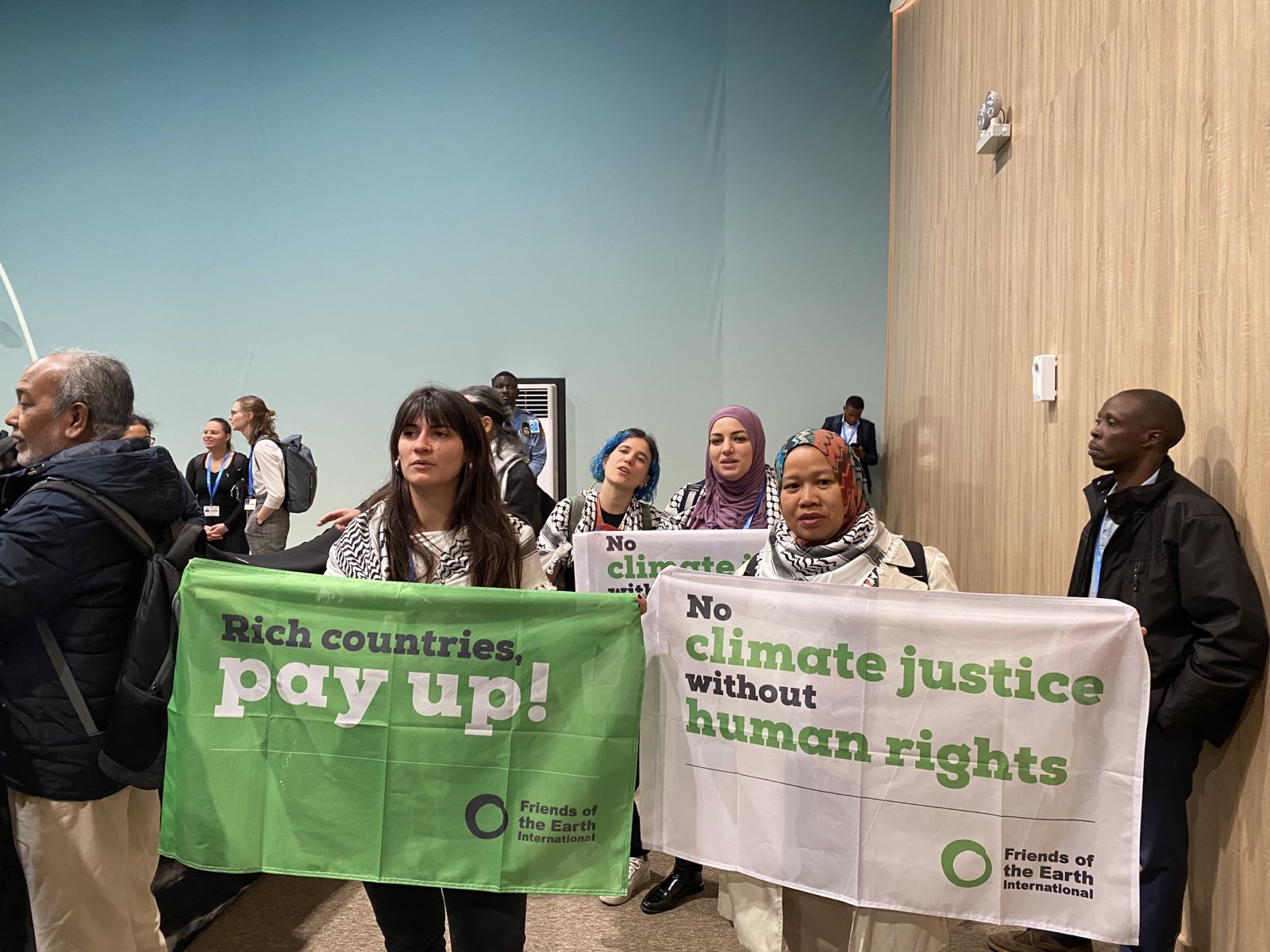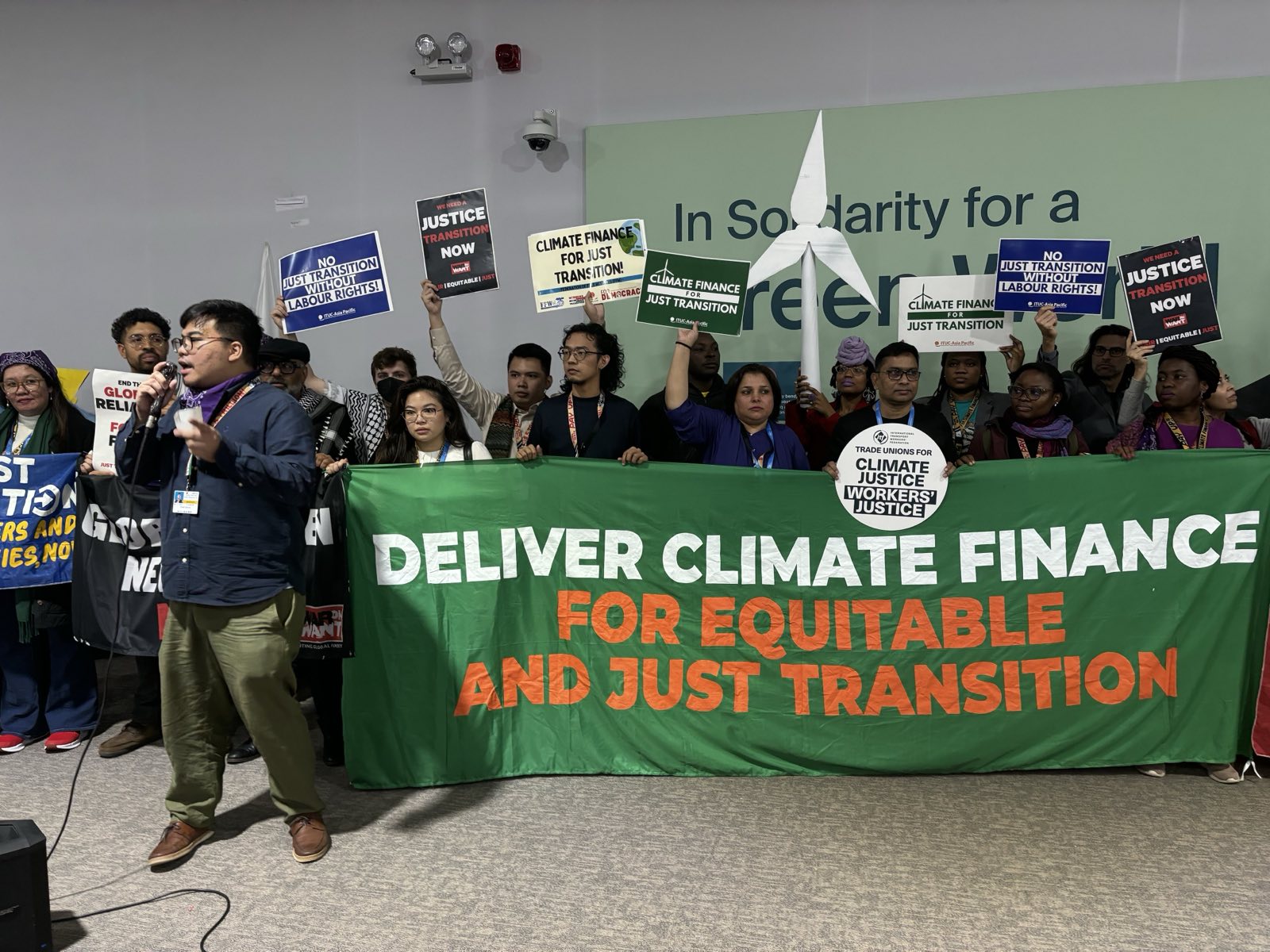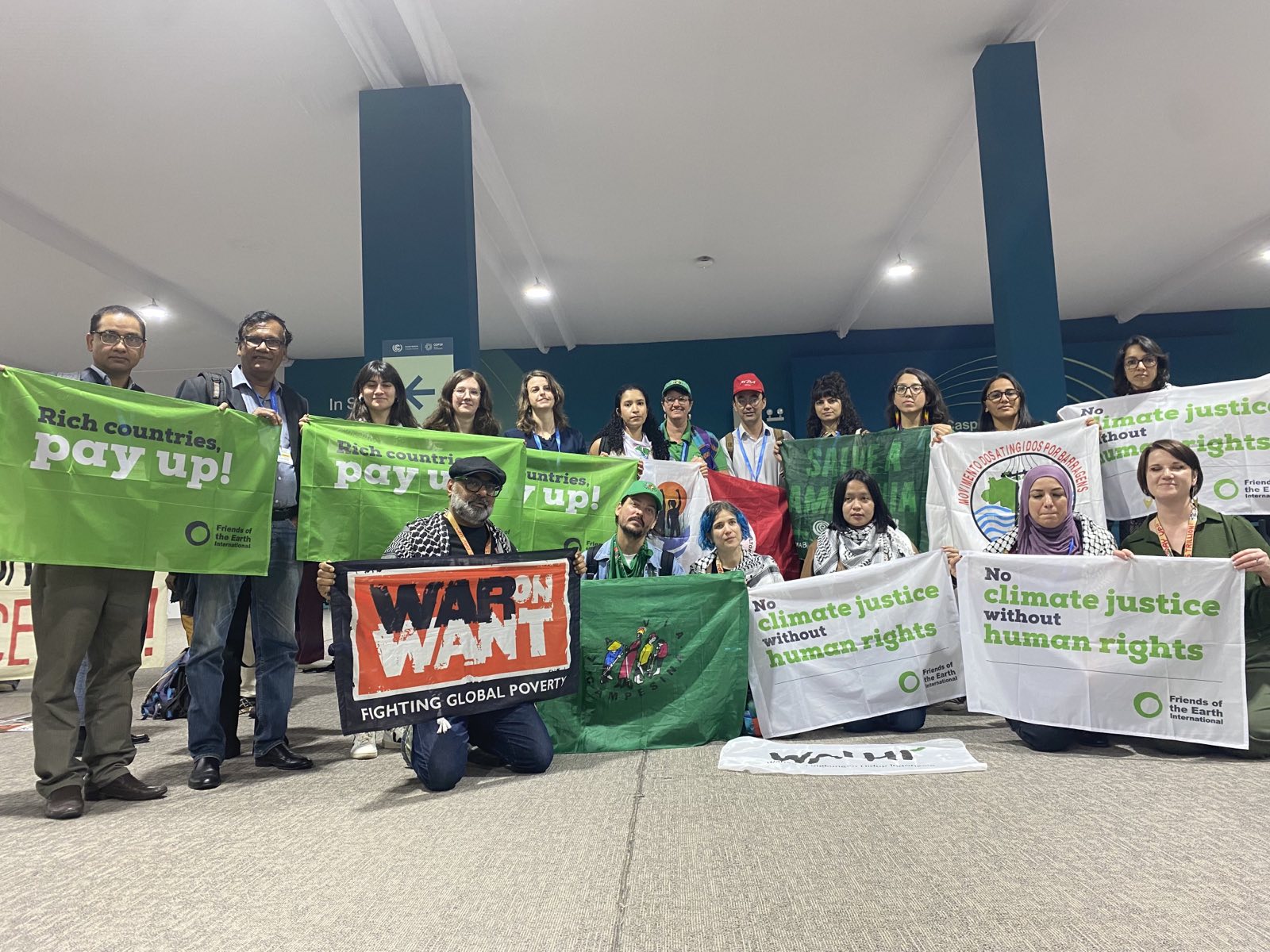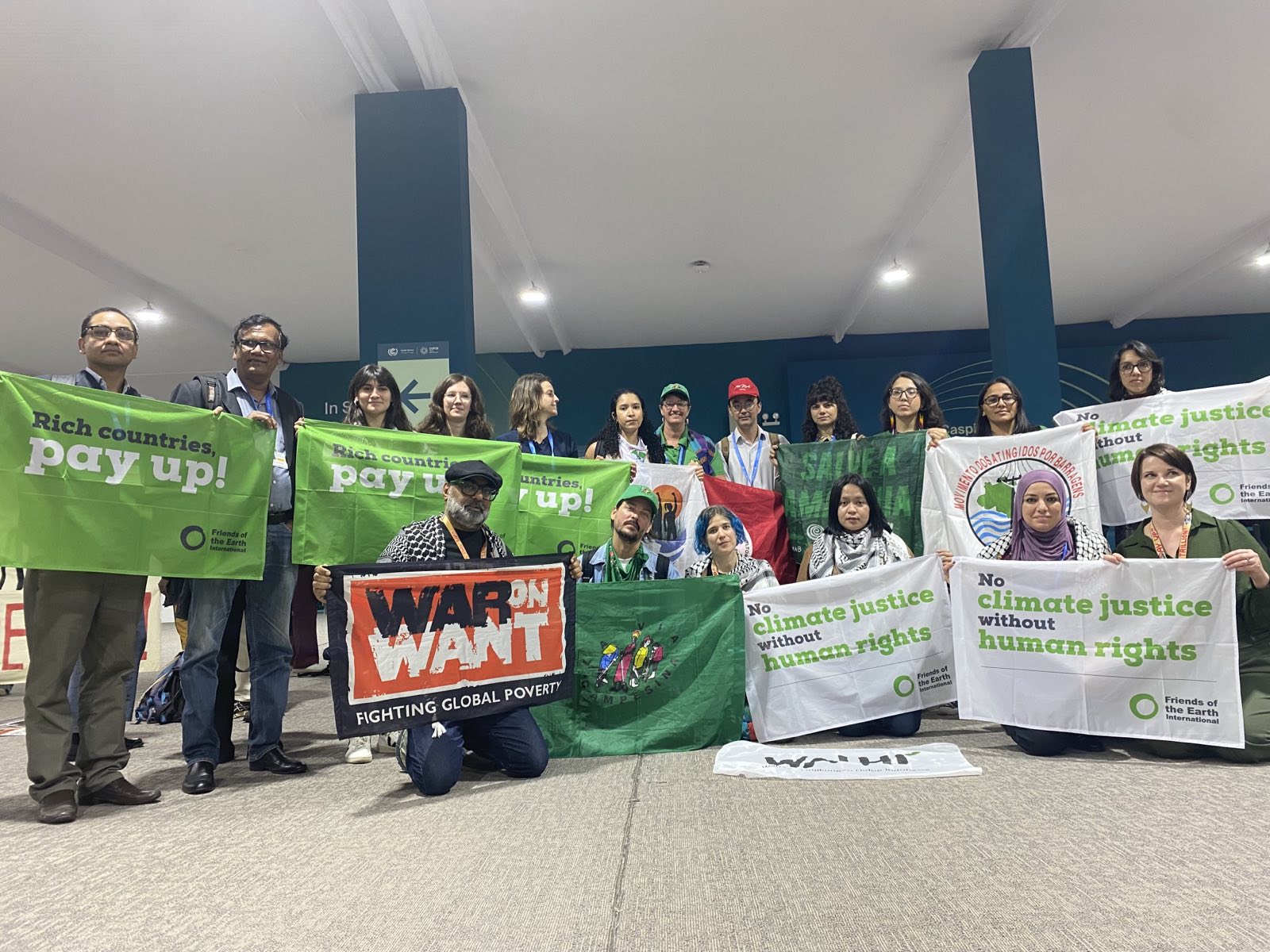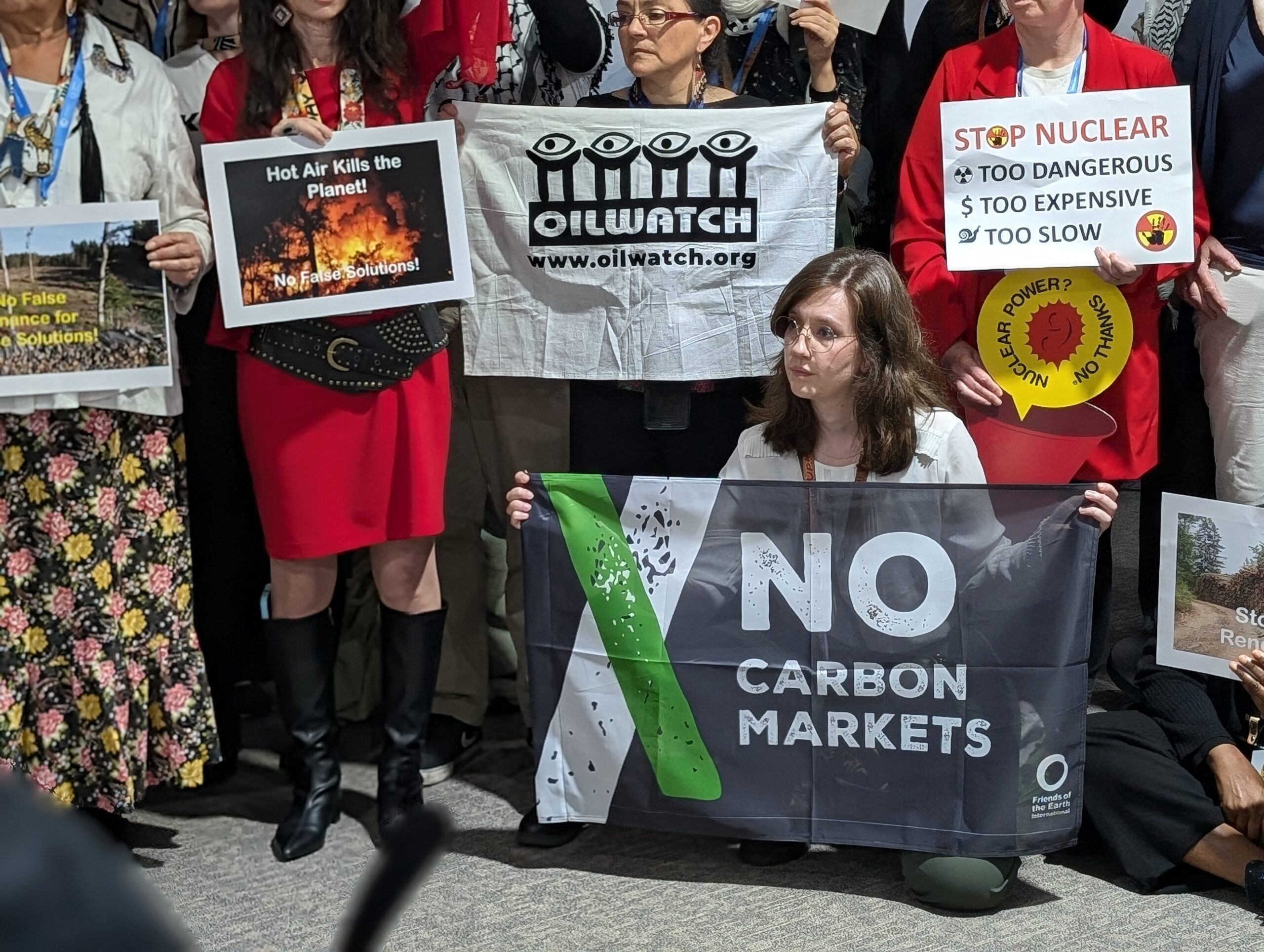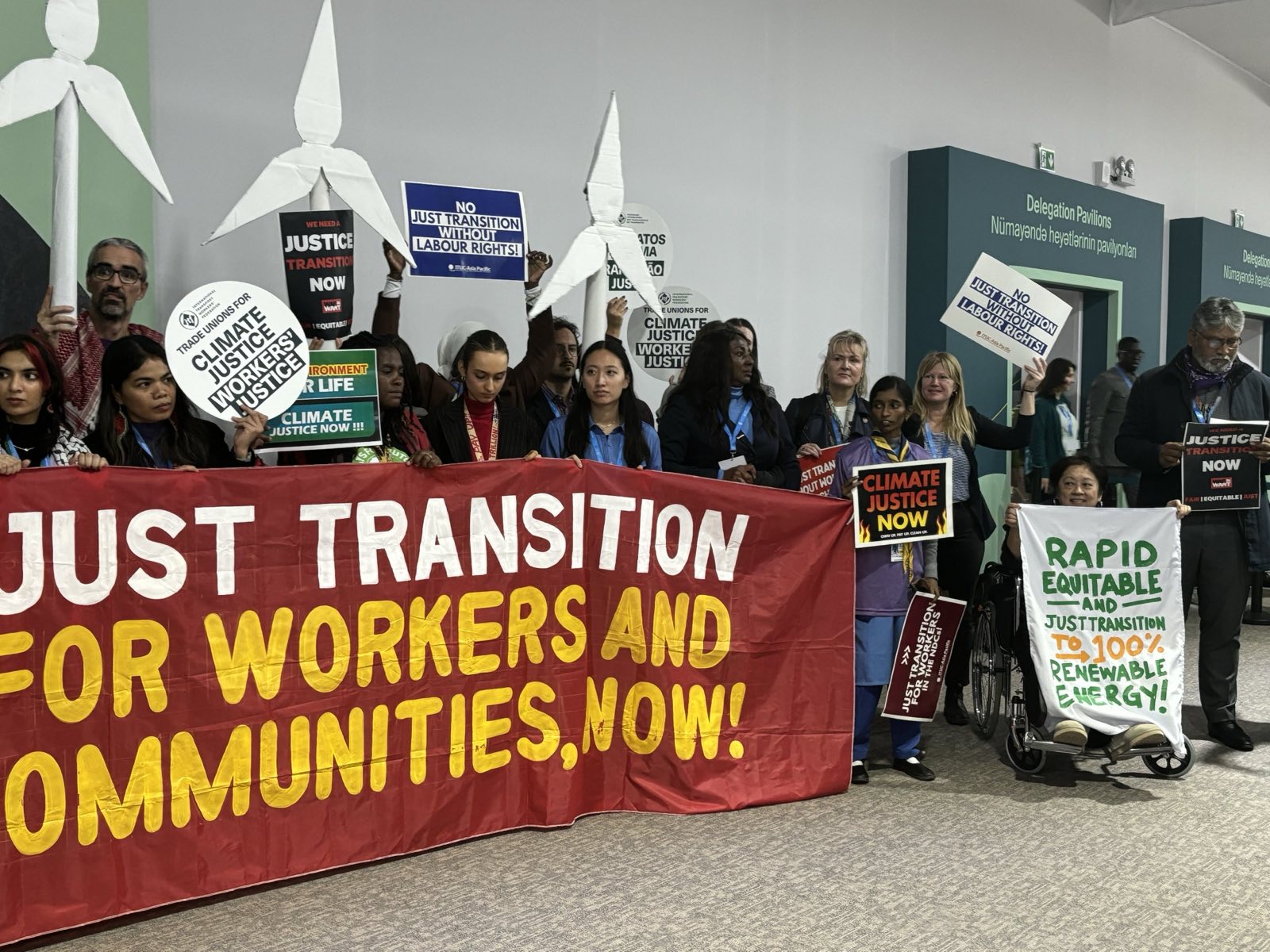Calling out the real ‘wreckers’
The Global Campaign to Demand Climate Justice
PRESS RELEASE:
BAKU, AZERBAIJAN, 18 NOV, 24 – 2024 may have been marked by devastating wildfires, floods, hurricanes, heatwaves and preventable climate and geopolitical disasters, but that has had no bearing upon COP 29 in Baku as G7 governments continue to underplay the threat from extreme weather and climate change related events and have turned up at this ‘Finance COP’ without money or a mandate due to electoral losses and collapsing coalitions. Needing to posture for political points back home, the US and EU are once again accusing developing countries of blocking progress, while attempting to divide G77+China unity as they stand strong for a New Collective Quantified Goal (NCQG). Our warming world needs a big breakthrough in Baku but it seems set for a breakdown.
The fate of the new collective quantified goal (NCQG) on climate finance hangs in the balance, as the Baku climate talks enter the second and final week of negotiations, scheduled to end Friday, Nov 22nd. While developing countries are calling for at least USD1.3 trillion per year, from the floor of USD 100 billion, whether there is political will from the remaining developed countries to provide a significant quantum in public resources remains to be seen. With Arab Group, the African Group (AGN) and the Like-Minded Developing Countries (LMDC) along with the G77 and China calling for more balanced text that includes key propositions on resilience building, adaptation concerns and Global justice while the Northern governments try to pull off ‘A Great Escape’ from historic and collective financial responsibility, it is unclear how the negotiations can get past the current impasse.
The 2015 Paris Agreement’s Article 9 says developed countries SHALL provide finance and technology to developing countries, yet by all honest accounts they have failed to deliver the $100 billion per year promised in Paris. NCQG aims to agree on a new number — a quantum or financial figure — for how much money developing countries can plan on developed countries’ providing in order to reduce their emissions and adapt to increasing impacts from climate change. G7 cannot keep harping about ambition without the show of commitment. Call out the real wreckers, at COP and back at home.
Victor Menotti, US Coordinator, Global Campaign to Demand Climate Justice
It is the same old story of the North running away from its responsibilities and trying to divide the South rather than repairing the trust that has been destroyed in this COP space. They are here without power and without money and without mandates so they are trying to shift the narrative and manufacture consent that it is the Global-South blocs that are blocking progress. Its something they love to tell folks back at home when in reality they have come here with zero commitment to preventing a climate collapse and making any progress on crucial negotiations that impact the future of the world. We know they have the money. It’s in their military budgets, their fossil fuel subsidies to big polluters, their tax breaks for billionaires. So the money is out their but its a crisis of political will on preventing a total climate collapse’
Mariama Williams, Global Afro-Descendant Climate Justice Collaborative
“The global community would love the US to continue to participate in global affairs. We also have to recognize that this is not the 1950s or 1960s anymore. We’re in a different world where there are multiple polarities. There’s the rise of BRICS, the BRICS government, BRICS group. And so there’s a lot more flexibility that is approachable for many developing countries. And so we’re not as panicked as 10, 15 years ago. Of course they’re not fully fledged and ready to go, but it does give us the possibility for finding new sources of funds for our development issues and for pushing for greater reform of the World Bank, IMF and the World Trade System. And these are all part of the climate system. The IPCC, which is the authoritative scientific body for this convention, for the first time in its 30 years said that colonialism is a driver. of climate change and so we want to get rid of colonialism and imperialism in the global monetary and climate system. We see that occurring also in this space so we will deal with whatever we have to deal with because that’s how the world flows.”
Lidy Nacpil, The Asian Peoples’ Movement on Debt and Development
We have two messages, it’s ‘Pay Up!’ for the Global North and ‘Stand Up’ to the Global South. Northern governments cannot wash their hands of historic and collective responsibility towards contributing to the NCQG. And we recognise their tactics of putting no public money on the offer as a way to get the Global South to accept Carbon Markets, which we know are devastating for our countries, communities and ecosystems, as a funding source for Climate Finance. We also want to remind negotiators that they have a responsibility to people back at home to stand up for our rights and get Global-North to pay up the debt that is owed to us ’.
Kirtana Chandrasekaran, Friends of the Earth International
The gaveling through of Article 6.4 is a desperate and a very dangerous last ditch attempt by developed countries to get some finance on the table in the absence of any kind of real commitment for grant based quality financing which is what is needed to move forward on NDCs and achieve emission reduction. It is very clear from 30 years of evidence and the mountain of reports released in the last several years including media exposes and investigations that the global carbon markets, both voluntary and compliance, are fraudulent. The vast majority of credits produced are actually based on frauds. Carbon markets do not reduce carbon emissions, they only displace them from one place to the other allowing big polluters and countries to continue polluting. They are a form of carbon colonialism allowing them to force the global south, within that the most marginalised communities including indigenous, communities, peasants and forest dependent communities, to bear the burden of Global North emissions.
